
Neil Short
Occupation
Copper miner
Education
B.S. Mathematics, Freed-Hardeman University
Website
neilshort.blogspot.com
Libraries
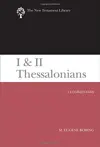

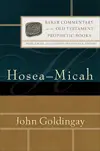

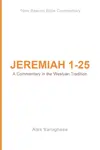

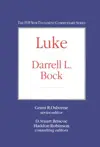

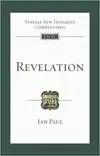

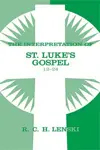

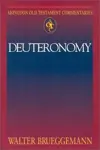

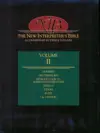

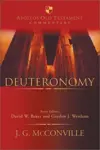

Reviews
First and Second Kings. WBComp. Westminster John Knox, 1999.
Outstanding commentary! It is great for pacing personal study and/or a teaching curriculum. Uniquely, Fretheim not only highlights the fact that God works in the world but also HOW God works in the world.
Genesis. AYB. Yale University Press, 1964.
I really liked this commentary a lot. Speiser gives careful analysis to source characteristics. Although some details of sources (JEP) are disputed among scholars, that there are source materials in Genesis is well established. This commentary gives the student a good grasp of source analysis and the body of the study where there is wide consensus.
Teaching Joshua: From Text to Message. PT. Christian Focus, 2019.
It is probably a good choice for preparing to teach the book of Joshua as long as you intend to accept the accounts of Joshua as historic facts and without question. That's probably the safest approach as long as your class is a bunch of white Southern Baptists. I can't use it. I need a guide that will help me read the text and still maintain my respect and admiration of God and God's character from a variety of cultural perspectives. This book ain't it.
Reading Joshua: A Historical-Critical/Archaeological Commentary. ROT. Smyth & Helwys, 2016.
I have read a handfull of commentaries on Joshua. I have wanted to dive into it deeply because the content of the book is very disturbing to be. How should I read this book in the context of being a modern Christian?
This commentary gave me the most peace of mind.
John C. H. Laughlin does not believe Joshua to be a running historically accurate account of Israel's conquest of Canaan. It is, rather, an idealized history from the perspective of the compilers of the book for a completely different time and setting. It is not clear what period the book is influenced by but it is fairly certain what period the compilation of the book is NOT. It was not composed in any period befor the Babylonian exile.
In very brief summary, If it was written in the exile, the authors were reflecting back and thinking about how wonderful it would have been if the early Israelite settlers had wiped out the Canaanites so the Israelites would not have dabbled in Canaanite religion which they blame for the exile. If the book of Joshua was written in the Persian period, then the authors were championing the doctrine that only pure Jews could be considered a pert of the community called God's People. Any children born to mixed race parents were automatically outside the community/assembly.
The commentary spends most of its space showing that almost every account described in Joshua could not possibly have happened as describedd and most likely never happened at all. That's really good news for those of us who are disturbed by Joshua's content.
If you study Joshua with this commentary, I recommend that you supplement your study with a commentary that suggests practical applications in the reading. I recommend J. Gordon Harris' commentary in the '"Understanding the Old Testament"' series.
Joshua. SHBC. Smyth & Helwys, 2019.
Carolyn Sharp’s commentary on Joshua (S&HBC, 2019) is a welcome voice in the studies of this very troubling book.
Along the way through the study, Sharp offers some solutions to the obvious setting of Joshua as it pertains to the extermination of indigenous Canaanites. She takes many opportunities to show accounts from the perspective of the vanquished. There are many sidebars that speak from the perspective of Native Americans and their plights at the hands of the westward push of the United States. Sharp includes where she can writings from ancient grieving Canaanites who died resisting the Israelite aggressors (248). She wrote, “Any cessation of hostilities won by the sword is not true rest” (253). One helpful solution for Christians, she offers, is that we can protest to God with lamentation over the suffering we read in Joshua and over other suffering we see around us. “In response to anyone who might claim that militarized extermination of enemies is authorized by god or that God’s ways narrated in Joshua are sovereign and ought not to be contested, one may respond that lament, too, is eminently biblical” (253).
Sharp suggests, and I agree with her on this, that any notion that the Canaanites deserved to die is not necessarily a true reflection on the character of God. Rather, it is the perspective of the scribe(s) who chronicled the accounts in the book. “To contemporary ears,” she writes, “it may sound absurd to say that all Canaanite indigenes, including noncombatants, brought torturous deaths upon themselves through the will of Yhwh at the hands of divinely appointed invaders. Indeed, the present author robustly declines that logic. But it is evidence of scribal theological and ethical reflection on the challenges presented by the countless deaths narrated in these sacred texts—including the deaths of all the Egyptian firstborn sons back in the time of Moses and the deaths of entire villages of Canaanite families in the time of Joshua” (241).
Sharp approaches her exegesis from the assumption of Christian pacifism (192) and it shows.
Sharp offers some valuable connections that address concerns for modern Christian readers. One important connection has to do with the value of a fresh theological perspective that can be gained from outsiders. Churches should not be closed communities. They should integrate their culture with others who may join the community late in their church lives. Good stuff.
Sometimes Sharp goes into lengthy study on topics that would interest few readers—like when she takes a deep dive into Yahweh’s lordship over the heavenly hosts (a spin-off study from Joshua 10:12-13).
I find Joshua difficult too. I confess that Sharp’s suggestions on how modern readers might handle the disturbing attitudes in the book left me a bit hollow. Most of her approach was to admit that the stories are terrible, just terrible; and the modern reader should just reject that kind of behavior from God and God’s people. She touched on the likelihood that the stories were embellished for an exilic or post-exilic audience. If that’s true, then the stories in Joshua are fanciful and we should not read them as events that actually happened. That approach is fine; but then we need a little more help in how we could read Joshua as sacred scripture with the exilic or post-exilic reader in mind. She suggested that we could accept the accounts as accurate and then we can respond with lamentation. That works too. The idea should be fleshed out a little more. If we go to God in lamentation, does God learn a better way to deal with human iniquity? Is the conquest of Canaan a part of God’s quest for covenant with man that eventually led God to the offering of the Messiah? I find that solution surprisingly satisfactory; but Sharp didn’t take her lamentation motif that far. Maybe she should have.
The only real surprise to me was that Sharp did not comment on the role of dishonesty in Rahab’s protection of the Israelite spies.
Ephesians. WC. Liturgical Press, 2017.
I was not impressed with this commentary. The author just accepts that the writer of Ephesians is a chauvinist pig and is dismissive of the writer's authority for the church and for modern Christians. I think a better interpretive approach is to show that the writer's attitude about women is historically misunderstood by the church. This commentary is the first that I read in the series. I hope that all the others have a higher view of Scripture and that the commentary on Ephesians is an outlier.
Joshua. OTL. Westminster John Knox, 1997.
"Richard Nelson’s 1997 commentary in the Old Testament Library series is a masterpiece of lucid historical analysis performed within a sensible redaction-critical framework."
Carolyn Sharp, "Joshua," S&HBC, 2019, p. 33.
Joshua, Judges, Ruth. UBOT. Hendrickson, 2000.
J. Gordon Harris' notes on Joshua were a delight to read. It is a brief commentary but the pase is just right for a short sermon series on Joshua. Missing is any useful discussion on how to treat all the bruitality in the book—for a modern church audience.
Joshua. TOTC. IVP Academic, 2008.
I was not as impressed with this commentary as I expected. The author focused too much on technical details of the text and battle execution at the expense of practical Christian/Jewish applications.
I am studying Joshua because I want to get a handle on God's bad behavior in Joshua's campaign in Canaan. Richard Hess didn't help much. Hess believes that all the Canaanite towns had the opportunity to join in covenant with Israel's God. Few joined in treaty with Israel politically and religiously. Most did not. For those rebellious towns: extermination.
That reading may be correct. I have my doubts. I have a hunch that the more likely origin of the genocidal wars is an exilic idealistic memory of the conquest of Canaan. I'm still studying. I wasn't helped much by Hess.
Furthermore, this commentary cannot be recommended as a study guide for class or sermon prep. There is too much tech and not enough application. The tech makes the commentary into a slow read.
“Ephesians” in Second Corinthians to Philemon. NIB. Abingdon Press, 2000.
Pheme Perkins did not write the Galatians commentary in the NIBC set; but she did write the Ephesians commentary in that set.
“Mark” in Matthew to Mark. NIB. Abingdon Press, 1995.
Perkins offers a distinct Arminian perspective not found in most other commentaries.
Jeremiah 1–25: A Commentary in the Wesleyan Tradition. NBBC. Beacon Hill Press of Kansas City, 2008.
Varughese's commentary on Jeremiah 1-25 is indeed a great help in understanding Jeremiah. He is quick to point out Jeremiah's theological perspective. Jeremiah frequently posed options to the people of Jerusalem: (1) Keep going the way you are going and go into exile in Babylon. (2) Change your ways, renew your adherence to covenant relationship to Yahweh and avoid exile in Babylon. For these options to have any integrity, the outcome of this choice (what the people of the city will actually do) is an open question even to God. Varughese is correct on that point. There is no need for a commentator to try to explain Jeremiah's thinking while trying to be sensitive to modern theological assumptions. Varughese does not take the contemporary theology bait....
.... except in the area of divine sovereignty. He seems to believe Jeremiah thought God, in his sovereignty, always has his way. That definition of sovereignty is definitely foreign to Jeremiah. Most of the time, God does not have his way. I found myself scratching my head the several times Varughese talked about God's sovereignty. It seemed to contradict other positions Varughese took in the commentary.
Well, who ever agrees with everything a commentator says? I am thinking that, since volume 2 (Jeremiah 26-52) is co-authored, perhaps the second author had some influence on the first volume.
All that being said, I wholeheartedly recommend Varughese's commentary on Jeremiah 1-25.
Luke. NAC. Broadman & Holman, 1993.
Stein is clearly an excellent commentator. I enjoyed reading it. I appreciated Stein's willingness to depart from standard academic assumptions when Luke clearly had something different in mind. Stein's textual analysis has a view towards understanding its meaning to the original readers. He approaches Luke's gospel as Luke's view of Jesus the Messiah. Stein does not attempt to harmonize Luke's view with that of the other three Gospels.
This may be petty on my part, but I appreciate that the footnotes are actually at the foot of the corresponding pages rather than in a thick section at the back of the book. I read the footnotes; so when they are at the back of the book I have to do my reading with two bookmarks.
Stein does make some claims about Luke that I believe panders to the commentary's expected reader. He, for example, he states without defense that the choice of Zechariah by lot (in 1:9) "was not the result of 'chance' or 'fate.' God was clearly in control of the event." Clearly? It is not clear to me. Again, he claims that Luke believed that God is sovereign over history. If it is true that Luke believed God controls history, I wish Stein defended his interpretation better. Obviously, many readers will agree; but I do not believe "sovereignty over history" is safe to assume.
So Stein's commentary is good but not great.
Luke 1–9: A Commentary in the Wesleyan Tradition. NBBC. Beacon Hill Press of Kansas City, 2011.
David Neale's command of the scriptures is obviously impeccable as is demonstrated in this commentary. He is able to spot passages in Luke that depend on certain passages in the Old Testament. Usually, Luke's use of the Old Testament comes in the way of paraphrase or familiar verbiage. I never noticed them until Neale pointed them out in this commentary. He is also very comfortable with the Deuterocanonical and Pseudepigraphic literature. He has spotted several places in the book of Luke that seem to tip their hats to passages in those places.
Some of his observations are quite brilliant, in my humble opinion. For example, when the seventy(-two) missionaries returned, he observed some things I have never before noticed:
Luke 10:18 "Luke, however, never explicitly refers to the preexistence of Jesus. Nor does he generally speak like an apocalyptic figure in Luke. It is more likely that the statement hyperbolically characterizes the disciples' success in exorcism as affecting the demise of Satan himself. ... Thus, the best interpretive position is that the disciples' successful exorcisms symbolically announce the defeat of Satan...." Neale adds to this view in his study of chapter 21.
Luke 10:20 "Here in Luke, Satan is dethroned by the healing and preaching of the disciples. this is a present reality, evidence of the presence of the kingdom of God in their midst (see Luke 17:21)" (vol. 2, p. 63).
On Luke 15:25-32, he says, "Jesus replaces an obsolete politics of holiness with a new policy of compassion. Holy community was to be based on openness to the ritually and morally impure. Communities were not to be founded on exclusion (closedness) but on inclusion (openness). The wideness of grace at the heart of Luke's Gospel radically challenges the theology of holiness as separation. Love and inclusion replace a theology of holiness based on separation with one based on compassion" (vol. 2, p. 144).
On some of Neale's positions, he does believe in the source hypothesis. He believes in the Q tradition but he does not admit it outright until p. 159 of volume 1.
As do most Christians, Neale believes that Jesus' death was God's will (p. 215-216, volume 1).
He does occasionally skip some passages that I wish he would have mentioned - even to say that hes has no idea how to handle them. In volume 2, he never mentioned the significance of the vultures in Luke 17:37. He does not provide a decent explanation for the meaning of Luke 21:25-26. Luke is clearly segueing from the destruction of Jerusalem to the "coming of the Son of Man" but it is not clear how the segue is to be understood. (I am really reaching to find something to criticize. My only point is that the commentary is not exhaustively thorough' but it hits on many themes that are often overlooked by commentators).
My biggest complaint is that these two volumes are published in two volumes rather than one. There is no reason that the content of these two volumes. Thirty-seven introductory pages in volume 1 are repeated in volume 2.
There is a fairly large amount of typographical errors, primarily in the area of scripture citations. When I looked them up, it seemed that the occasional cross-reference did not have the content that it was purported to have, or the reference did not exist at all! Most of the typos I was able to figure out and they appeared to be cases in which the author got his fingers on the wrong number keys when typing... almost like he was typing in the dark. I don't know if the whole series was edited the same way; but a closer editing method would have helped with the occasional confusing reference. I only found seven or eight; but that is seven or eight mistyped references.
1 and 2 Kings: A Commentary in the Wesleyan Tradition. NBBC. Beacon Hill Press of Kansas City, 2017.
I appreciate Dr. Winslow's commentary on 1&2 Kings. It is a decent commentary useful for personal study and for Bible class prep. The commentary is a nice mix of text-technical, theological-pastoral and devotional interest.
She digs into authorship when there is an interesting point to be made. For example, she observed something at 1 Kings 4:24 that I have never noticed. "For he had dominion over all the region west of the Euphrates from Tiphsah to Gaza, over all the kings west of the Euphrates; and he had peace on all sides." The line "west of the Euphrates" is actually "across the Euphrates" which places that particular writer east of the Euphrates (= Babylon). Knowing the context of at least these parts of 1&2 Kings helps us to find original meaning and to find richer application for our own contemporary and personal applications. Winslow's observance here is, I think, brilliant and appropriate.
She sometimes cautiously speculates about the accounts. For example, it seems that Nathan and Bathsheba took advantage of David's old-age senility in order to get David to order Solomon to take the throne in his place. I never noticed that possibility before and I think Winslow is on the right track.
Winslow does not assume Kings' unity with other biblical histories. For example, God’s promise to build David's house "forever" as it appears in the book of Samuel comes across as an unconditional promise; but in the book of Kings, there are clearly conditions behind the promise.
The writers of the book of Kings saw prophecy, particularly prophetic announcements of God’s plans, to be conditional. Winslow does not attempt to explain away the tone of these prophecies in a modern theological sense. The fact that a prophet condemned Jeroboam's religious innovations was an invitation for Jeroboam to avert the threat against Israel by turning away from those innovations. Jeroboam, of course, did not repent of his wrong-headed ideas; so the threatened judgments came true.
I do wish Dr. Winslow addressed some of the obvious difficulties that come up in a study of the book of Kings. For example, she does not really talk about the mechanism by which the young prophet was able to predict that the name of the king that would carry out the predicted judgment is a future king named Josiah. I consider the naming of Josiah to be a difficulty—especially from a Wesleyan perspective.
Other issues I wish she had hit on harder include:
* why Josiah's reforms were unable to thwart the coming Babylonian crisis
* the mechanism by which a random arrow was able to kill Ahab.
* how we ought to understand God’s apparent deception of Ahab’s prophets in 1 Kings 22
* how different biblical writers had differing views regarding the acceptability of the "high places"
Some points I think she nailed include:
* some important personal application from Ahijah's prophesies against Jeroboam's dynasty
* the meaning of God adding fifteen years to Hezekiah's life
* some important lessons we can take from the healing of Naaman
The theological perspective is definitely Wesleyan/Arminian. If your thinking goes along those lines, you will find this commentary useful. I have found that study materials that take different theological assumptions than I are totally unhelpful.
Winslow's commentary, while incomplete in some areas, is pure gold in others for exposing meanings that have been overlooked or undiscovered.
